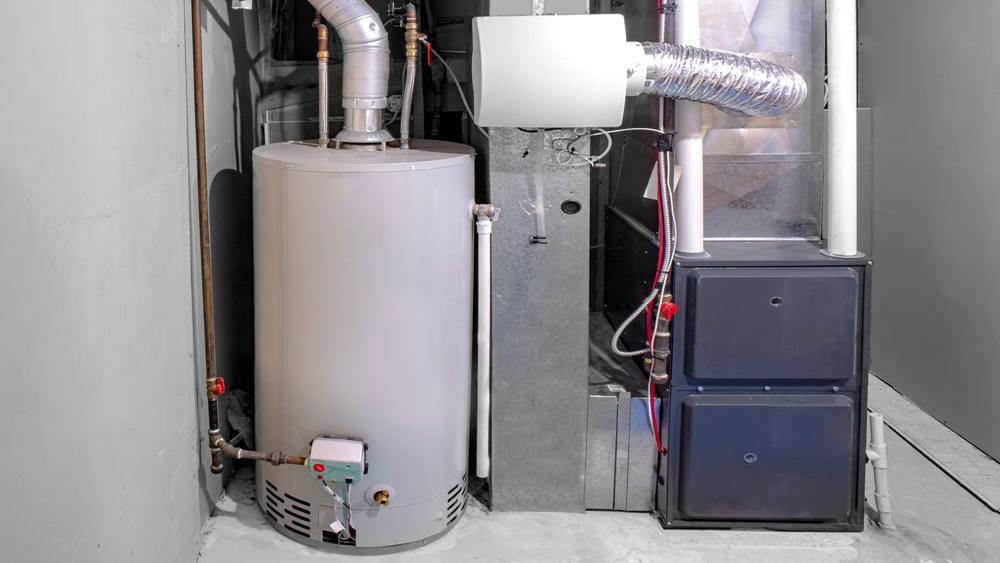Top HVAC Portland experts ready to maintain your system
Top HVAC Portland experts ready to maintain your system
Blog Article
The Ultimate Overview to Heating System Setup for a Cozy Home
Heater installment is a vital facet of maintaining a comfy home environment, particularly during the chillier months. As you take into consideration these variables, the inquiry stays: what steps can you take to ensure your heating system offers you well for years to come?
Kinds Of Heating Systems

Gas heaters are one of the most usual option because of their efficiency and lower operational prices. They utilize all-natural gas or lp, giving quick heating and regular performance, making them optimal for chillier environments.
Electric heating systems, while normally simpler to mount and preserve, tend to have higher operational prices. They are usually preferred in areas where gas service is not available or for homes with existing electrical infrastructure.
Oil heaters, though much less typical today, stay a viable option in particular areas. They melt home heating oil, which can be beneficial throughout chillier months, yet their reliance on oil delivery poses prospective challenges.
Additionally, there are high-efficiency versions readily available across these types, which can significantly reduce energy consumption and energy expenses - furnace installation. Eventually, recognizing these heater types will aid property owners select a system that straightens with their home heating needs, budget plan, and energy preferences
Picking the Right Dimension
Choosing the ideal size for a furnace is important to guaranteeing optimal performance and power efficiency. A small heater will certainly battle to maintain comfy temperature levels throughout the cool months, bring about boosted damage, greater energy expenses, and possible system failing. On the other hand, an oversized furnace might cycle on and off as well regularly, resulting in inefficient heating and uneven temperature level distribution within the home.
To identify the appropriate heater size, a calculation known as the Guidebook J load estimation should be carried out. This procedure reviews various elements, consisting of the square video of the home, insulation levels, window sizes, and local climate problems. This thorough analysis ensures that the heater satisfies the details home heating needs of the area.

Installment Refine Introduction
In terms of products, you will require ductwork, insulation, and sealing tape to ensure optimal air movement and power efficiency - furnace installation. It is additionally important to have a new furnace filter accessible, along with airing vent products, such as PVC pipe or metal flue, relying on the kind of furnace being mounted
Security devices, consisting of handwear covers, safety glasses, and a face mask, is likewise essential to protect against dust and particles during installment. Having all these devices and products hop over to here conveniently offered not only enhances the procedure yet additionally boosts the safety and effectiveness of the heating system installation.
Maintenance Tips for Long Life
To make sure the long life of your heating system, it is important to apply a normal upkeep schedule that resolves crucial components of the system. Start by changing or cleaning the air filter every one to 3 months, as a clogged up filter can limit air movement and lower performance. Furthermore, inspect and clean up the blower assembly to stop dust buildup that can hinder efficiency.
Next, inspect the thermostat settings and rectify if necessary to guarantee exact temperature level law. Examine the ductwork for leaks or obstructions, as this can bring about energy loss and uneven home heating. Regularly lubricate the electric motor and bearings according to the supplier's suggestions to decrease wear and tear.
Expert assessments ought to take place every year, where a qualified technician can assess the heater's total condition, check for gas leaks, and make certain that safety and security features are functioning appropriately. Take into consideration installing a programmable thermostat to optimize power usage and preserve regular home temperature levels. By adopting these maintenance techniques, you can enhance your heater's performance, extend its life expectancy, and eventually appreciate a relaxing and comfortable home setting.
Final Thought

Report this page